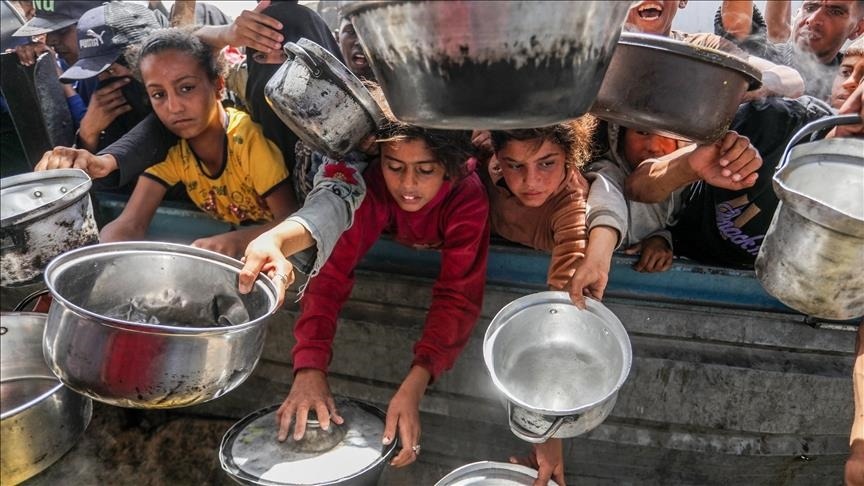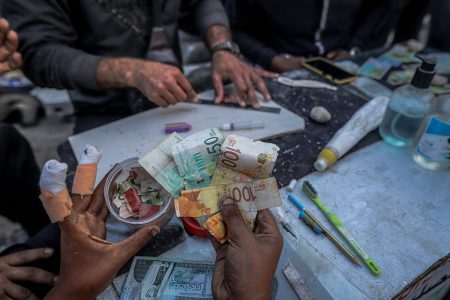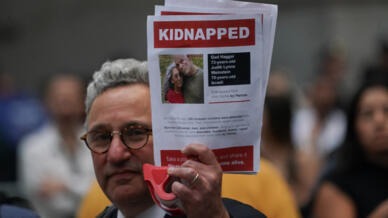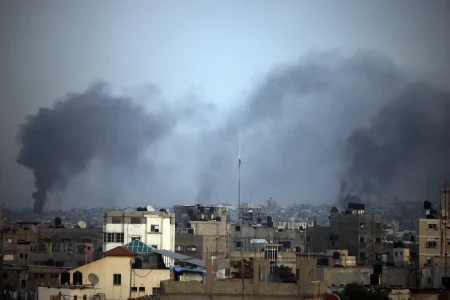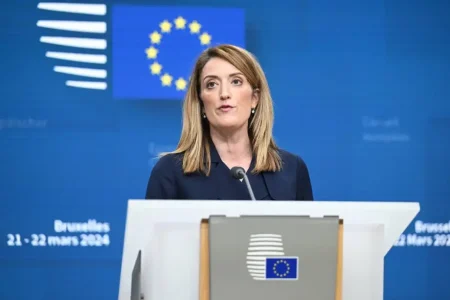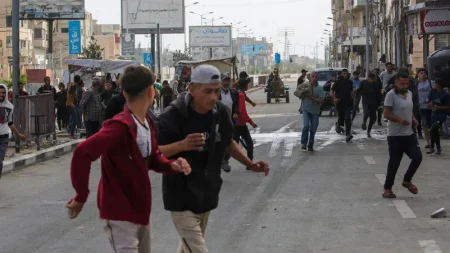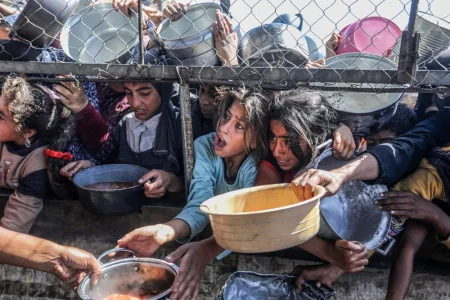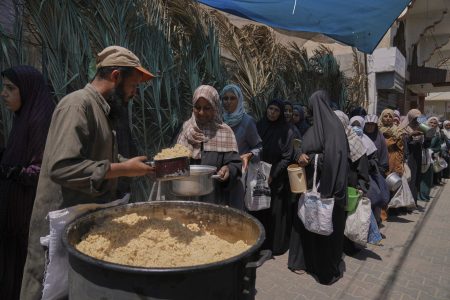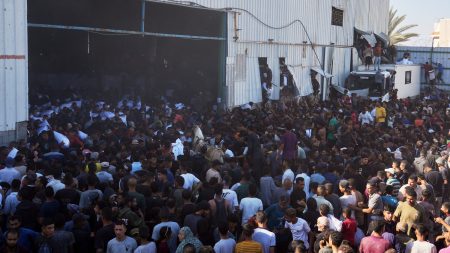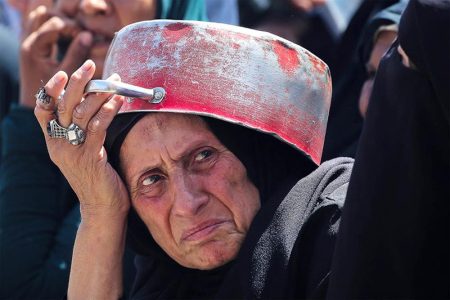Palestine’s envoy to the United Nations, Riyad Mansour, has accused Israel of deliberately blocking humanitarian aid to Gaza, leading to a crisis he described as “engineered starvation.” Speaking at a UN Security Council meeting on Tuesday, Mansour condemned Israel’s actions, claiming the country has intentionally denied aid for over two months, causing severe suffering for millions of people in the Gaza Strip. His remarks come amid growing international concern over the humanitarian situation in the region.
At the meeting, Mansour outlined the Palestinian perspective on the current humanitarian crisis in Gaza. He emphasized that Israel’s systematic denial of aid is exacerbating an already dire situation. He claimed that Israel has been blocking humanitarian aid for more than two months and that this action is contributing to a worsening of the crisis.
Mansour argued that the Israeli government is manipulating the distribution of aid in a way that puts the lives of civilians at risk. He criticized the Israeli government for using aid as a tool to further oppress Gaza’s population. He said Israel is pushing aid organizations and civilians into militarized zones to receive or distribute aid, which increases the danger to everyone involved. This system, Mansour said, has been rejected by all UN agencies and humanitarian organizations because it is harmful to both the recipients and the aid workers.
The envoy also accused Israel of denying aid to the most vulnerable populations, such as the elderly, children, and people with disabilities. According to Mansour, the aid distribution system involves counting calories and denying assistance to many who need it the most. This, he argued, is a continuation of Israel’s efforts to further subjugate the people of Gaza.
Mansour was clear in stating that the ongoing humanitarian disaster is a direct result of Israel’s policies. He stressed that the situation in Gaza could not be blamed on external factors but on the Israeli government’s persistent denial of humanitarian assistance. He stated that the only reason for the horrific conditions in Gaza is Israel’s continued blockade of aid.
The Palestinian envoy called for urgent international action to break the siege imposed on Gaza, describing the situation as creating a “violent, forced famine” for the people in the enclave. He urged the international community to consider “all possible steps” to end the blockade and address the humanitarian crisis that has left over two million people without access to basic necessities.
In his address, Mansour appealed to the members of the UN Security Council and the General Assembly to take immediate action to alleviate the suffering of Gaza’s residents. He called for a collective effort to lift the siege, urging that Israel’s actions should not be left to the discretion of a government focused on dispossessing, displacing, and destroying the Palestinian people.
Mansour emphasized the urgency of the matter, urging that the situation could not continue. He appealed to the international community to act quickly to save the millions of lives that hang in the balance.
The situation in Gaza has drawn widespread condemnation from various international organizations and governments. The United Nations and humanitarian groups have repeatedly warned about the worsening conditions in the enclave, citing the lack of access to food, medical supplies, and clean water. Several aid agencies have called for Israel to allow unrestricted access to Gaza in order to provide essential humanitarian support.
In response to the growing outcry, the UN has called for a ceasefire to allow aid to reach the people in need. However, efforts to reach a peaceful resolution have so far been unsuccessful, with Israel maintaining its stance on security concerns and the need for strict controls over aid distribution.
The humanitarian situation in Gaza remains critical, with millions of people in desperate need of food, medical supplies, and basic necessities. The international community, led by the United Nations, is being urged to take swift action to address the crisis and break the siege on Gaza. As the situation continues to worsen, the pressure on Israel to lift restrictions on aid and allow for more humanitarian assistance is mounting.





